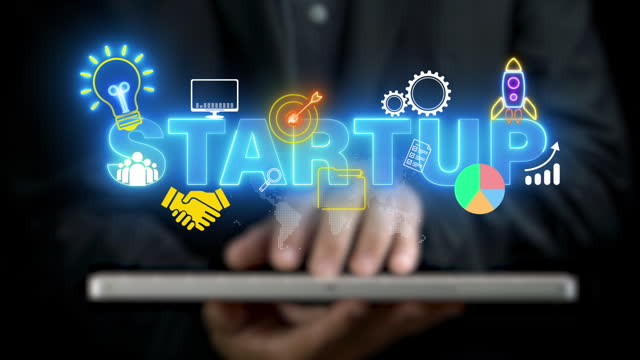In today’s fast-paced business environment, startups are increasingly rewriting the rules of various industries with innovative business models. These new approaches are challenging established companies and transforming traditional sectors. From technology and finance to healthcare and retail, startups are employing unique strategies that not only offer better value to consumers but also drive competition and foster a culture of rapid evolution.
1. Subscription-Based Models
One of the most prominent disruptions comes from the subscription-based model, which has revolutionized industries ranging from media to consumer goods. Companies like Netflix and Spotify have redefined entertainment consumption by providing unlimited access to a vast array of content for a recurring fee. This model shifts the focus from one-time purchases to ongoing customer engagement and retention. Similarly, startups in the beauty and wellness sector, such as Birchbox and FabFitFun, offer curated product boxes on a subscription basis, delivering personalized experiences directly to consumers’ doors. The subscription model allows for predictable revenue streams and fosters brand loyalty by regularly engaging customers.

2. Platform-Based Ecosystems
The platform-based model is another game-changer, exemplified by companies like Uber and Airbnb. These startups leverage technology to create digital marketplaces that connect providers with consumers. Uber disrupted traditional taxi services by offering a convenient, app-based ride-hailing service that eliminates the need for traditional taxi infrastructure. Likewise, Airbnb transformed the hospitality industry by allowing individuals to rent out their homes or spare rooms, creating a vast network of alternative lodging options. These platforms benefit from network effects, where the value of the service increases as more users join, creating a powerful competitive advantage.
3. Direct-to-Consumer (DTC) Models
The Direct-to-Consumer (DTC) model has gained traction, particularly in the retail sector. Startups like Warby Parker and Glossier bypass traditional retail channels to sell directly to customers via online platforms. This approach reduces costs associated with intermediaries and allows for greater control over brand messaging and customer experience. By collecting data directly from consumers, DTC brands can quickly adapt their offerings to meet evolving preferences. The model also fosters deeper customer relationships and enhances brand loyalty through personalized experiences and responsive service.

4. Freemium Models
Freemium models, used by companies such as Dropbox and LinkedIn, offer basic services for free while charging for premium features. This approach allows users to experience a product or service at no cost, reducing barriers to entry and encouraging widespread adoption. Once users are engaged, they can be converted into paying customers for enhanced functionalities. Freemium models leverage user acquisition to build a large base, which can then be monetized through upgrades and premium features. This strategy not only drives user growth but also creates a pipeline for revenue generation.
5. Sharing Economy
The sharing economy, popularized by startups like WeWork and Rent The Runway, is disrupting traditional ownership models by facilitating the temporary use of goods and services. WeWork, for instance, provides flexible coworking spaces, challenging the conventional office lease model. Rent The Runway allows consumers to rent high-end fashion items, providing access to luxury without the need for ownership. This model promotes resource efficiency and reduces waste by enabling consumers to access products and services as needed rather than purchasing them outright.
6. Impact-Driven Models
Startups are also focusing on impact-driven business models that prioritize social and environmental responsibility. Companies like Patagonia and Toms Shoes integrate their missions into their business models, committing to ethical practices and community support. Toms, for example, operates on a “one for one” model, where every purchase of a pair of shoes leads to a donation of a pair to someone in need. Such models appeal to increasingly conscious consumers who seek to support businesses with positive social impact, differentiating these startups in competitive markets.

7. Blockchain and Decentralized Models
Blockchain technology and decentralized models are emerging as significant disruptors across various industries. Startups like Bitcoin and Ethereum are challenging traditional financial systems by offering decentralized currencies and smart contracts. These technologies enable peer-to-peer transactions without intermediaries, enhancing security and reducing costs. In industries like supply chain management and digital identity, blockchain’s transparency and immutability offer promising solutions for efficiency and trustworthiness.
Conclusion
Startups are driving innovation and disruption across traditional industries through a variety of innovative business models. Whether through subscription services, platform-based ecosystems, direct-to-consumer approaches, freemium structures, sharing economies, impact-driven strategies, or blockchain technology, these new models are reshaping market dynamics and consumer expectations. As these startups continue to push boundaries and challenge established norms, traditional companies must adapt to stay competitive in an ever-evolving business landscape. The result is a vibrant and dynamic market where innovation leads and consumers benefit from improved choices and experiences.

